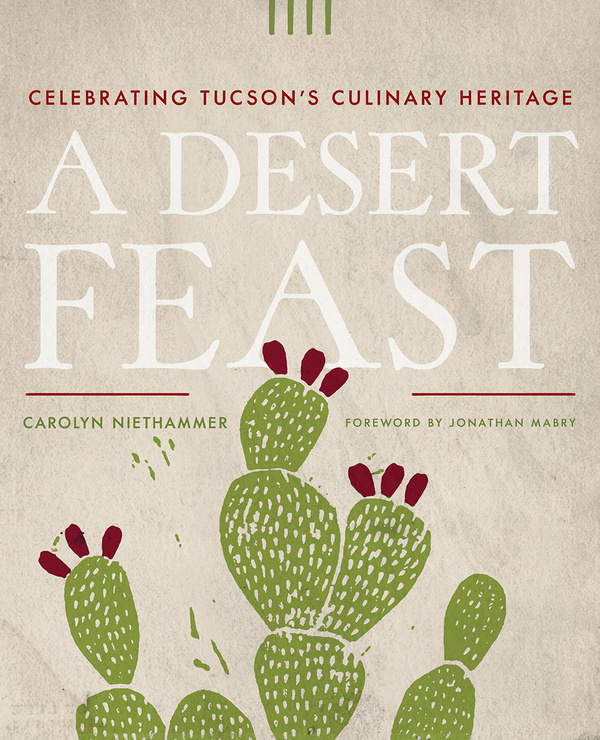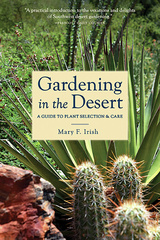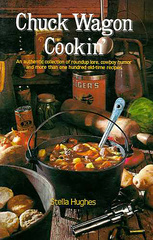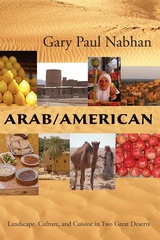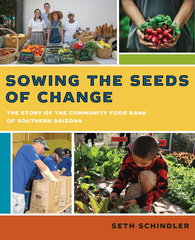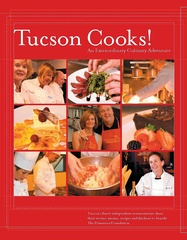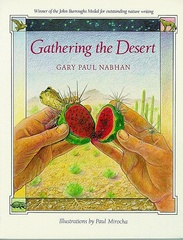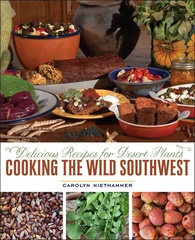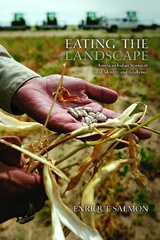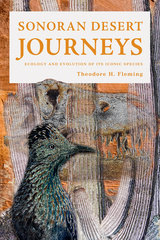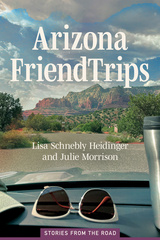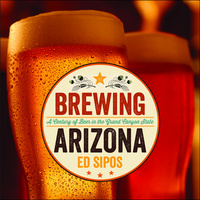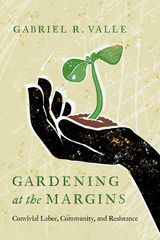Our shopping cart is currently down. To place an order, please contact our distributor, UTP Distribution, directly at utpbooks@utpress.utoronto.ca.
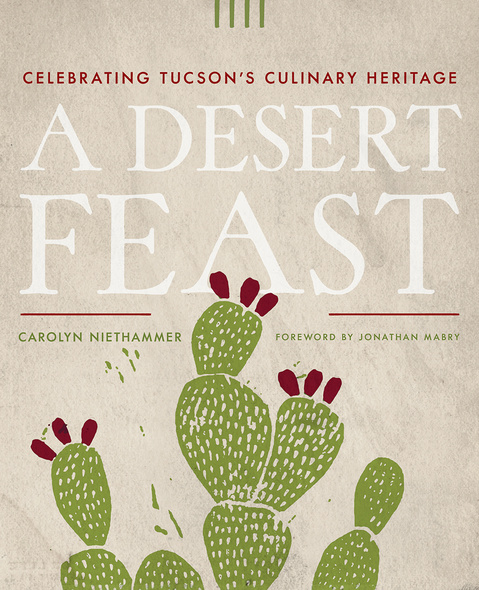
A Desert Feast
Celebrating Tucson's Culinary Heritage
Southwest Book of the Year Award Winner
Pubwest Book Design Award Winner
Drawing on thousands of years of foodways, Tucson cuisine blends the influences of Indigenous, Mexican, mission-era Mediterranean, and ranch-style cowboy food traditions. This book offers a food pilgrimage, where stories and recipes demonstrate why the desert city of Tucson became American’s first UNESCO City of Gastronomy.
Both family supper tables and the city’s trendiest restaurants feature native desert plants and innovative dishes incorporating ancient agricultural staples. Award-winning writer Carolyn Niethammer deliciously shows how the Sonoran Desert’s first farmers grew tasty crops that continue to influence Tucson menus and how the arrival of Roman Catholic missionaries, Spanish soldiers, and Chinese farmers influenced what Tucsonans ate.
White Sonora wheat, tepary beans, and criollo cattle steaks make Tucson’s cuisine unique. In A Desert Feast, you’ll see pictures of kids learning to grow food at school, and you’ll meet the farmers, small-scale food entrepreneurs, and chefs who are dedicated to growing and using heritage foods. It’s fair to say, “Tucson tastes like nowhere else.”
In A Desert Feast, Carolyn Niethammer takes readers on a 'food pilgrimage' through Tucson’s culinary heritage from its earliest Indigenous inhabitants to more recent migrants, all of whom contributed to distinctive dishes and cooking styles, using both native ingredients and others that could be adapted to the local environment. ... Abundantly illustrated, A Desert Feast covers the history of both food production and preparation in Tucson, including recipes and highlights of contemporary food purveyors.'—Christopher M. Bradley, Journal of Arizona History
‘For four decades, Carolyn Niethammer has been the most steadfast contributor to cookbooks, food journalism, and culinary history in the Southwest. We would not know the heritage of what we eat without her. However, her concise new synthesis of our multi-ethnic food history—exploring the foods and cultural features that gained Tucson the honor of becoming the first UNESCO-designated City of Gastronomy in the United States—will have staying power like no other. Eat and celebrate this book.’—Gary Nabhan, author of Desert Smells Like Rain
‘Indispensable, Niethammer’s book is fascinating, taking us through the cultural and historical significance from 4,000 years ago at the base of ‘A’ Mountain to the modern-day celebration of artisan growers and chefs who have all been a part of making Tucson a UNESCO Creative City of Gastronomy. This is not a book to finish in one sitting, but something to be savored along with the book’s many recipes, time and time again.’—Barry Infuso, President, Chefs Association of Southern Arizona
‘Carolyn Niethammer is well-known for her writings on southwestern native foods and cultures, and she does not disappoint with her wonderful book that is a major contribution focusing on the important subject of healthful eating in the context of place. She provides a most interesting description of Tucsonans and the Presidio’s rich history, helping us understand their commitment to their food and cultural heritage that earned the city’s title of Creative City of Gastronomy by UNESCO. Niethammer also provides a synthesis and description of places and people one can easily access to acquire foods characteristic of this magnificent region.’—Wendy C. Hodgson, author of Food Plants of the Sonoran Desert
'... an extraordinary feast for the mind and palate.'—Midwest Library Review
Acknowledgments
Introduction: Why Tucson is a Unesco City of Gastronomy
Prehistoric and Early History of Wild Foods: Eating off the Land
Traditional Early Agriculture: 4,000 Years in the Fields of the Santa Cruz Basin
Europeans, Mexicans, and Chinese: Bringing New Foods and Traditions
Gardening in the Desert: Growing Your Own Vegetables, Tucson Style
Small- Scale Commercial Agriculture: Contracting Tucson’s Foodshed
Tucson’s Artisan Food Producers
Our Sonoran Culinary Heritage— It’s a Tucson Thing
Food Justice
Epilogue. in the Coronavirus Crisis: How Tucson United to Feed the City
Index

